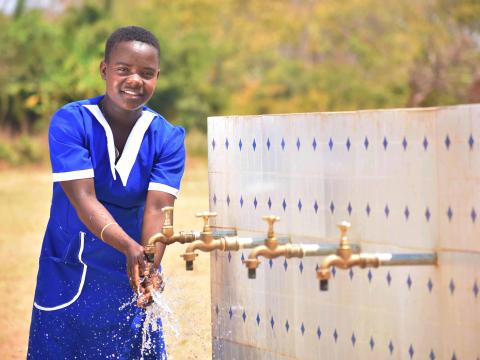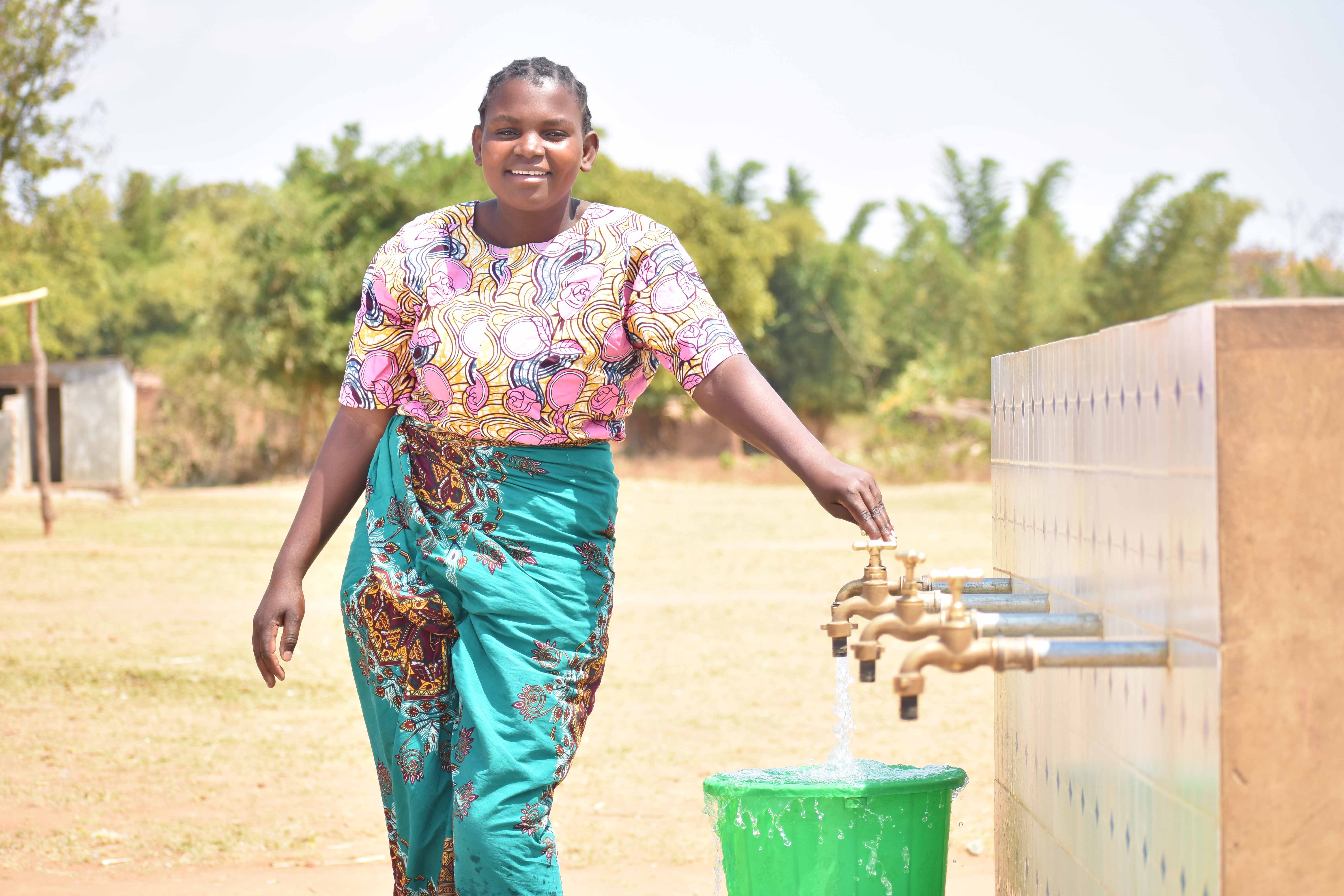Mechanised water system transforms Melita's school

Sixteen-year-old Melita nearly dropped out of school. Lack of access to clean and safe water at school made her educational life difficult.
“I could not concentrate on my studies. The water situation at the school was not supportive to personal health and hygiene for me as a girl,” says Melita. To survive at the school, she and the rest of the senior learners at the school carried their own water to school in buckets.
A nearby borehole in one of the surrounding villages offered no hope. There, over 200 households fought for a turn to get water, every day. The struggle for water was real, especially for school-going children like Melita.
“There was always unending quarrels between school children and community members”, says Charles Mumba, the primary school's headteacher.
He adds that the water problem at both the school and surrounding villages forced children to use water from unprotected sources, a situation that put many lives at high risk of contracting waterborne diseases such as cholera and diarrhoea. As such, many children often came to school late because they spent a significant amount of time fetching water to take it to school instead of preparing for their classes.
But, a new mechanised tap water system at the school has transformed lives of many children and the rest of the community members. The supply system was installed by World Vision with the aim of elevating children’s health through access to clean and safe water.
For Melita, the new water supply facility is a huge leap in her life, especially in her education journey. “I am excited because water is available anytime and near us. I am enjoying my lessons without any problem related to water stress,” she says.
The mechanised water system is currently pumping water from a borehole that was sunk many years ago. With three kiosks (each with four taps) supplying water to the school and the surrounding village, the impact and reach has been significant.
Headteacher Mumba says the easy access to safe water at the school motivated many children to start school or continue attending classes. “In the second term of 2021-2022 school calendar year, the school registered 285 new learners. Most of these learners have been 'lured' to school by the availability of good water,” says Mumba.
He adds that design of the water kiosks with four taps ensures multiple access and use for learners, which reduces congestion and allows learners to go back in class in good time. Currently, the school has 1,532 enrolled children.
Apart from serving the school, the mechanised system is also supplying water to surrounding communities with three more kiosks serving over 200 households.

The communities are being served by pure groundwater that is pumped into tanks by solar power before distribution through pipes connected to water taps.
Groundwater is a great resource that is being celebrated in this year’s World Water Day. This year’s theme focuses on the vital role of groundwater in water and sanitation systems, agriculture, industry, ecosystems and climate change adaptation. The key message is that protecting and sustainably using groundwater is central to surviving and adapting to climate change and meeting the needs of a growing population hence the need to work together to sustainably manage this precious resource.
At World Vision, water security and resilience is one of our water sanitation and hygiene (WASH) programming areas, with a view to ensuring sustained water availability.
"Our approach to water security requires looking 'beyond the pipe' to the broader integrity of ecosystems and catchments accompanied by the mitigation of water pollution. We view upstream interventions to improve watershed management—including forest conservation, farmer managed natural regeneration, erosion control, and artificial groundwater recharge—as a critical aspect of safeguarding the downstream drinking water supply,” reads our Global WASH Business Plan for 2021 – 2025.
Adopting strategies for integrated water resource management is surely the best approach in ensuring ever-presence of groundwater that is largely used in mechanised supply systems like the one at this school. We are hopeful that protecting groundwater systems would increasingly serve a generation of children like Melita towards realising their potential in life through improved access to safe water.